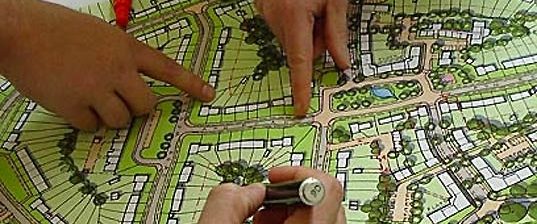Introduction
A Thesis or Research Project 1 is a critical component of an urban and regional planning program. It is designed to allow students to demonstrate their ability to conduct independent research, apply theoretical and practical knowledge, and contribute original insights to the field.
This project typically occurs in the final year of the program and serves as a culmination of the students’ academic and practical learning experiences.

Purpose
The primary purpose of Thesis/Research Project 1 is to equip students with the skills necessary to identify, analyze, and propose solutions to complex urban and regional planning issues. This project emphasizes critical thinking, research methodologies, and the application of planning theories to real-world problems.
Components
- Proposal Development: Students begin by identifying a research question or problem relevant to urban and regional planning. They then develop a proposal that outlines the objectives, significance, literature review, methodology, and expected outcomes of their research.
- Literature Review: A thorough review of existing literature is conducted to provide a foundation for the research. This review helps to identify gaps in current knowledge and positions the student’s work within the broader context of urban and regional planning studies.
- Methodology: Students choose appropriate research methods to collect and analyze data. Methods may include qualitative techniques like interviews and case studies, quantitative techniques like surveys and statistical analysis, or a combination of both.
- Data Collection and Analysis: This stage involves gathering data through various means, such as fieldwork, archival research, or secondary data sources. Students then analyze the data to draw meaningful conclusions related to their research question.
- Findings and Discussion: The findings section presents the results of the research, while the discussion interprets these results in the context of the research question and existing literature. This section also explores the implications of the findings for urban and regional planning practice.
- Conclusion and Recommendations: The project concludes with a summary of the key findings, their implications, and recommendations for future research or practical applications. Students may also suggest policy changes or planning strategies based on their research.
- Presentation and Defense: Students typically present their research findings to a panel of faculty members and peers. This presentation is followed by a defense, where students answer questions and justify their research approach and conclusions.
Significance
Thesis/Research Project 1 is significant for several reasons:
- Skill Development: It hones research, analytical, and communication skills.
- Knowledge Contribution: It contributes new knowledge or perspectives to the field of urban and regional planning.
- Professional Preparation: It prepares students for professional roles by simulating real-world planning challenges and solutions.
- Academic Achievement: It serves as a capstone project that reflects the student’s academic growth and readiness to enter the professional world.
Conclusion
Thesis/Research Project 1 is a pivotal element of urban and regional planning education. It challenges students to integrate their learning, conduct independent research, and make meaningful contributions to the field. By completing this project, students are better prepared to address the complex and dynamic challenges of urban and regional planning in their future careers.




